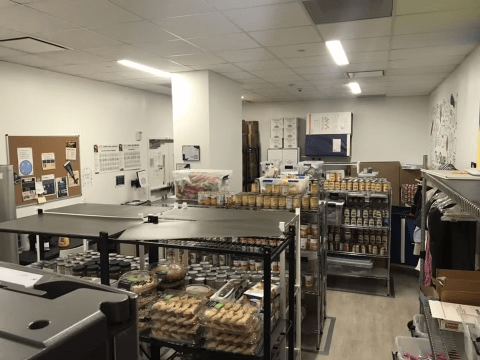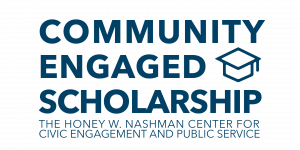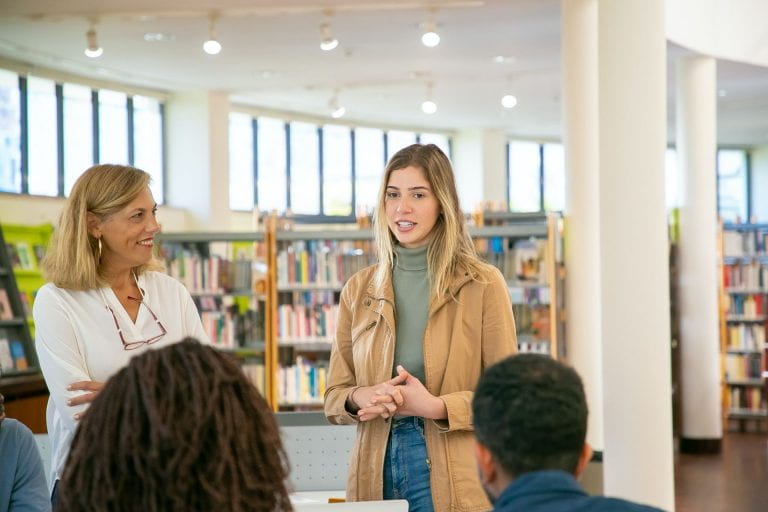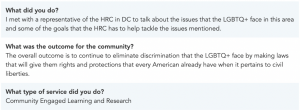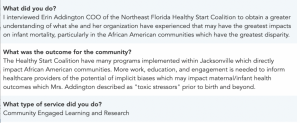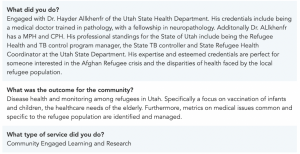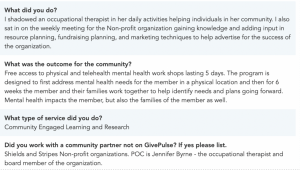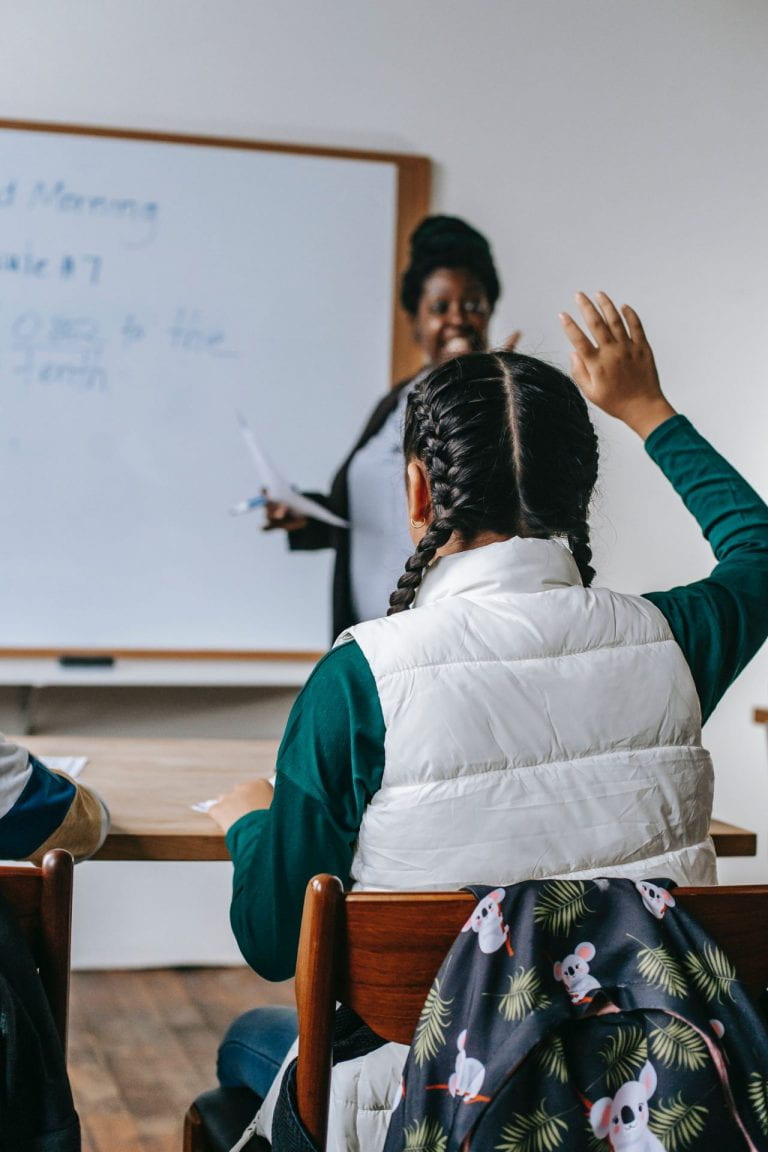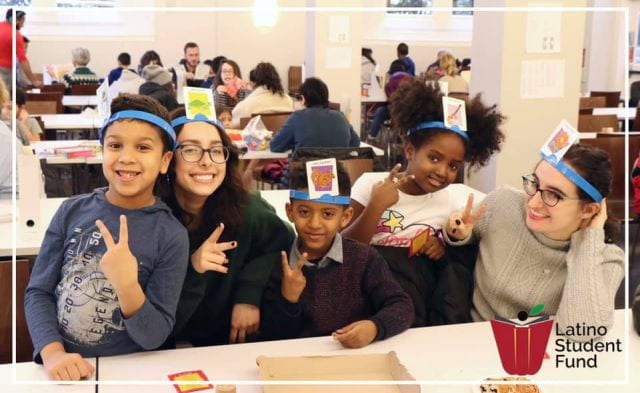Award: 1st Place, Nashman Center Prize for Community Engaged Research, 2022
Project: Key Recommendations for Higher Education Institutions to Provide Non-Financial Support to Refugee-Background Students
At the annual GW Research Showcase in spring 2022, research team Olivia Issa, Emmanuelle Dyer Melhado, and Sara Alassaf presented their research, which grounded a larger project, the Welcoming Campus Initiative. This grassroots program advocates for a more inclusive GW community for refugee-background students including a scholarship, mentorship program, and revised admissions practices.
The program was initially developed by No Lost Generation GWU (NLG) members in collaboration with refugee-background students on campus and the Student Voices for Refugees Network. Olivia Issa studied Political Science and Arabic Language at GW and helped lead refugee-advocacy groups before graduating.
This program has expanded through conversations with numerous other universities and organizations across the country, outlining proposals at schools like Georgetown University and George Mason University to start their own Welcoming Campus Initiative. The Welcoming Campus Initiative Committee is planning to continue further programming, including fundraising events and awareness projects geared to make GW an inclusive space for all.
Read more about the initiative here. Read more about the research project here.
“We worked with students internationally, including refugee-background students themselves, to interview practitioners and student recipients of college-access programs for refugees in the US, Mexico, and Canada through Student Voices for Refugees,” Issa said.
The purpose of this study was to both acknowledge the barriers sitting at the forefront for refugee-background students and bring forth recommendations to the higher education institutions to better connect these students to resources. Two categories of non-financial student assistance emerge from their research: revising admissions practices, like accepting Duolingo English tests in addition to TOEFL scores, and developing pre-arrival and on-campus mentorship programs. After realizing GW was a vital component in assuring her goals come to fruition, Issa began the Welcome Campus Initiative project to help make "life-changing education" happen.
Outlined below are some key components from Issa's research:
| Community Partnership | Recommendations for GW and other higher education schools |
| Project by the University Alliance for Refugees and At-Risk Migrants: Student Voices for Refugees | Switching out standardized test requirements for low-cost English proficiency exams that schools are beginning to accept |
| Volunteers created toolkits for refugee-background students through scholarships and mentorship programs | Implementing an alumni mentorship networking program modeled after World University Services Canada |
| Olivia Issa spearheaded practitioner-student interviews with those involved in college-access programs | Adding pre-entrance language programs and volunteer-led English tutoring like Proyecto Habesha and GirlForward |

